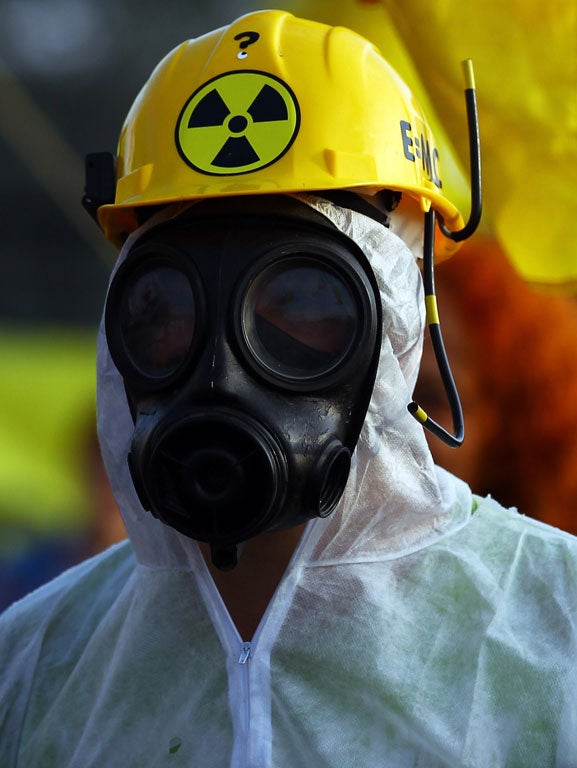Clouds are gathering over Britain's new nuclear dawn
The Government's plans to head off an impending energy crisis are shrouded in uncertainty, reports Mark Leftly

The politicians of Cumbria County Council have cooled on the idea of burying hundreds of thousands of tonnes of nuclear waste but a kilometre beneath their feet.
Initially tempted by the huge economic benefits a £12bn nuclear research and disposal would bring, councillors now seem dismayed that the waste wouldn't be considered safe for another 100,000 years.
On Tuesday, the council put back plans to test the suitability of potential sites until next year. This is the latest in a series of blows for a government that is worried sick of an impending energy gap: OfGem has just warned that spare energy production capacity will be gone in three years, making the UK dependent on imported gas. Ministers want to settle this energy crisis with a wave of new nuclear power stations, particularly as it is a clean power source that will help the country meet strict carbon emissions targets.
If the three consortiums that are planning to develop those stations cannot even rely on the UK to find a dumping ground for radioactive waste, then there may be no future for the new nuclear programme.
Yet, Whitehall remains fairly calm about the state of the consortiums, convinced that the first of the five sites that are due to start generating power by 2019 will broadly hit that target.
The most committed company to the nuclear programme is France's EDF Energy. What is less certain is the willingness of British Gas' parent Centrica, the only British company left within the three groups. EDF is known to have drawn up a "plan B" should Centrica pull out, which could happen when the Government finalises a nuclear market rate band later this year.
The floor of that band will determine whether there is enough money in new nuclear generation to allow it to ignore more straightforward opportunities in traditional markets, such as gas production. Critics argue that this is essentially a subsidy.
The first project due is a new, £14bn plant at Hinkley Point in Somerset, which would be the UK's first since 1995. EDF is in talks with two Chinese energy giants about selling them a stake in Hinkley, a move that would spread some of the risk of the project – particularly if Centrica does decide to pull out.
The biggest blow to new build came earlier this year when German energy groups RWE and E.on decided to ditch their Horizon consortium, which was to spend £15bn on new power stations in North Wales and Gloucestershire.
At the time, environmentalists believed this was a significant moment in their campaign to persuade the government nuclear was potentially too dangerous, and wind and solar power made far more sense. However, government nerves were soon calmed when several potential bidders appeared.
Bids were due at the end of last month and were expected from three parties. However, one of these groupings, which consisted of Guangdong and France's Areva pulled out at the last minute, fuelling reports that the process was in disarray.
However, a source close to that sale insists the consortium would have been the weakest of the three, with Guangdong far more eager to take that stake in Hinkley Point.
The two remaining ventures are led by Japanese rivals Hitachi and Toshiba, though there have been questions over the latter's financing for the bid.
NuGen is due to build on Sellafield, and is the existing developer most shrouded in mystery. Even a Government source admits he is not certain what is going on.
Last week there was a seemingly well-sourced report that Iberdrola was planning to pull-out, which the Spanish group has since denied. Whitehall mandarins are taking this denial at face value and industry insiders are, in fact, more concerned that Iberdrola's partner, GDF Suez, might eventually be the one which chooses not to proceed.
As clear as mud, then – which is why it is unsurprising such doubts remain over nuclear's new dawn.
Subscribe to Independent Premium to bookmark this article
Want to bookmark your favourite articles and stories to read or reference later? Start your Independent Premium subscription today.

Join our commenting forum
Join thought-provoking conversations, follow other Independent readers and see their replies